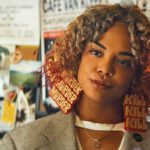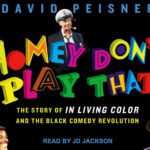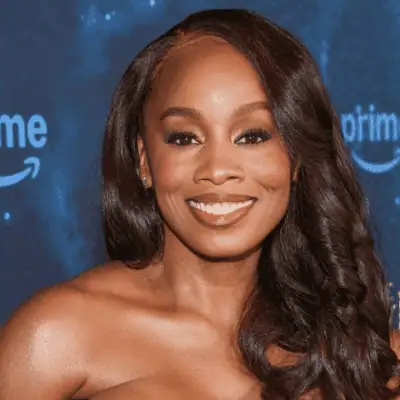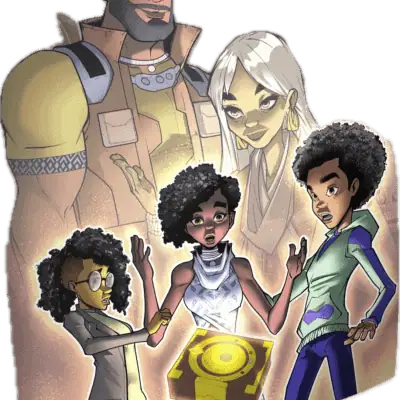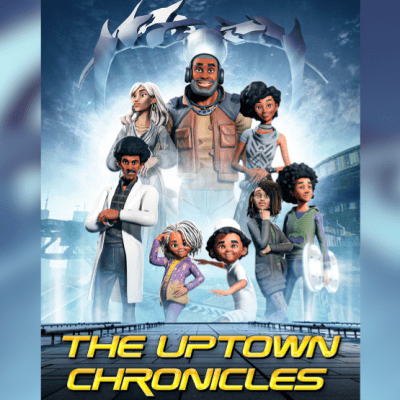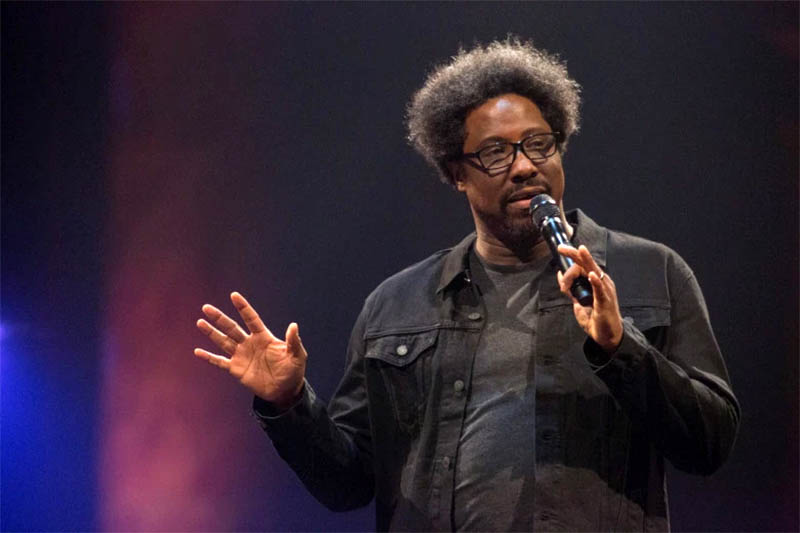
In his first Netflix special, comedian and host of CNN’s United Shades of America W. Kamau Bell uses his experiences as a black man and a parent to highlight the problematic and absurd state of our so-called democracy. Titling his performance Private School Negro, Bell presents his own positionality to assert that blackness is not a monolith. Riffing mostly on the role of media in our society and the pervasiveness of micro-aggressions, Bell offers an insightful look into cartoons, news shows, and everyday interactions.
Bell’s most poignant tactic are anecdotes that involve his young daughters. Bell, who is married to a white woman, has two “mixed race or black” daughters with a third on the way. Bell uses his conversation with his six-year-old daughter, Sami, to demonstrate the ways in which we, as a society, are ridiculous. While watching CNN, Sami enters and asks her father, “Are they still trying to figure why Donald Trump is president?” Not only is Bell surprised at her ability to gage the political context from merely tuning in and out of the news report, but he is impressed with the accuracy of her seemingly simple statement. For him, her assessment not only calls into question the morality and overall dysfunction of this country, but the capitalistically repetitive way in which the media reports on these issues under the guise of informing the public. Bell comments on the need to control the amount and types of media that his children consume after Sami hears the reports about Trump calling other nations “shithole” countries; his wife preferring the kids watch Game of Thrones over CNN.
Bell’s bits on his family resonate with a larger audience than some of his other jokes, which require that audience members have a more intimate knowledge of Washington D.C. and its many players. When the punchline to his jokes are the names of politicians, if you are not familiar then you miss out on the laugh. Thus, his act serves a blend of genres – stand-up and political satire.
While not laugh-out-loud, funny, I particularly enjoyed his explanation of his appreciation and connection with the kids cartoon Doc McStuffins, about a little black girl who treats her stuffed animals, and whose own mother is a black female doctor. Bell recounts his daughter’s excitement turned disappointment upon visiting the doctor and learning that he was not in fact a black woman but a white man. Sami is so disturbed she attempts to remove herself from the situation by feigning tiredness. Bell then proclaims how amazing it is that his daughter’s understanding of a doctor is in fact a black woman, a notion that challenges our society’s “norms.”
Bell’s style is a bit more didactic than I would personally prefer; however, it does serve a greater point. By taking the time to present and then deconstruct problematic world views, Bell models the ways in which we should engage with the issues plaguing our world. In one instance, he clarifies the justification of free speech that many use to simultaneously defend their spiel of hatred and their right to avoid backlash. He states, “You have the freedom of speech, but what you don’t have is the freedom from consequences from that speech.” This concise articulation serves as a underlying theme in his performance – the hypocrisy of those who want to bask in the freedoms of our constitution whilst using it to oppress others. Through moments like these, Private School Negro leaves audiences with a taste for thoughtfully digesting the unsavory events that take place in our everyday lives and on our screens.


